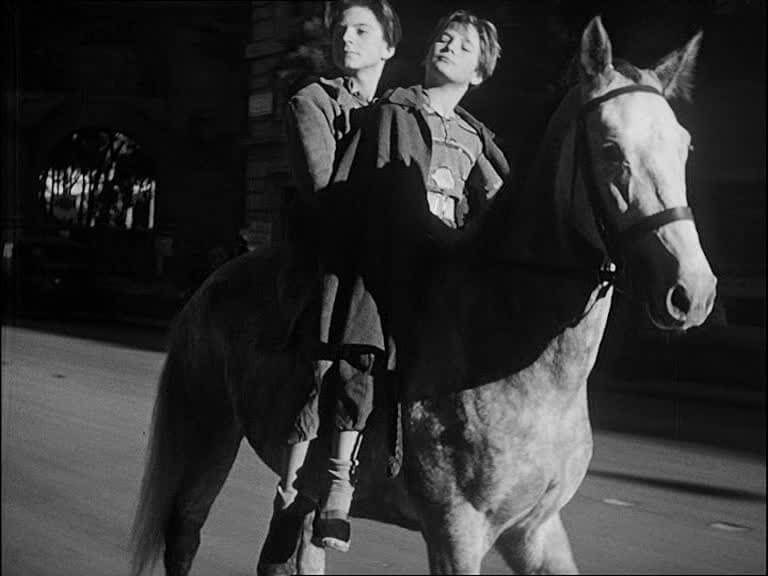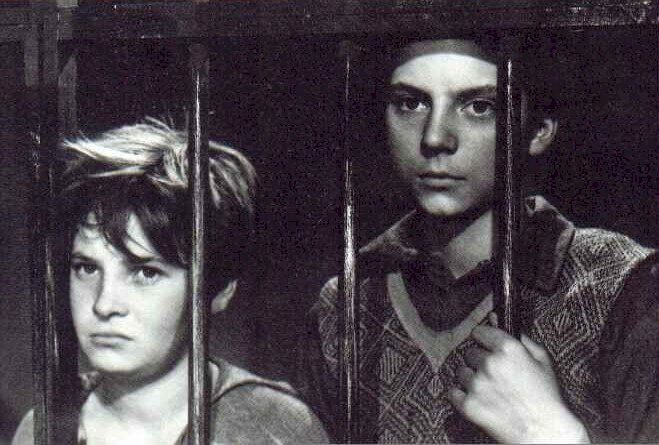On the Wikipedia page for Sciuscià (Shoeshine in America) two quotes from Orson Welles and Pauline Kael are included praising the movie for its verisimilitude. Kael writes beautifully that, “The greatness of Shoeshine is in that feeling we get of human emotions that have not been worked-over and worked-into something (a pattern? a structure?) and cannot really be comprised in such a structure.” She speaks about a nakedness to the movie, something about its presentation that captures the “confusion and accident” of everyday life. The movie is one of the earliest Italian neorealist movies directed by Vittorio De Sica, and tells the story of two shoeshine boys implicated in a bribery scheme who wind up in juvenile prison.
Though not vocally anti-fascist in its content, the movie courses with political indignation and resistance to any myth of national glory. The juvenile prison system is characterized by De Sica as draconian, inefficient, and more vindictive than utilitarian. But the attention to the poverty-stricken, desperate, and orphaned child characters never drifts into sentimentality or maudlin melodrama. I think, to put it a bit crudely, that it’s the lack of “acting” in the movie that grounds it in realism – the two main boys, Pasquale and Giuseppe, are not tortured souls, wretched or pessimistic. They’re boys whose main goal is to buy a horse and be able to ride him through the streets of Rome. They don’t speak in elegy or in a pamphleteering, revolutionary voice. They speak with sarcasm, with innuendo, jabbing at each other and the people around them in a funny, natural manner. One of the most impressive things to me about the movie is how believably De Sica writes young boys. Not just in their humor, but in their impulse towards violence, a brawling, short-tempered energy which hovers around their code of manhood.

Like Kael, I found myself impressed throughout Sciuscià by how real everything felt. The cinematography, score, and costuming is all simple. Yet I don’t know if I’d go so far as Welles to say the movie feels just like real life. The chain of events feels grounded and sometimes accidental, yes, but there is still the basic skeleton of narrative and the feeling of progression and intensification that characterizes many of our favorite stories. The final scene, in particular, stands out to me as a moment teetering on the edge of melodrama, but I do think Kael is right that even in that moment, there is something markedly undramatic, a suddenness and bruteness that turns the climax into a kind of anticlimax.
Realism for many people is defined by a lack of the most dramatic, contrived elements of story, by an attempt to affect spontaneity, authenticity in dress, setting, mannerism, or something along those lines. The claim of the realist film is that something more realistic will resonate more deeply with audience members. Though the question remains for me whether what we go looking for in stories is a mirror of reality, or other elegances and tricks of narrative that brighten reality into something more exciting. Wherever Sciuscià falls on that spectrum of narrative and realism, it’s undeniably still powerful and relevant today.
